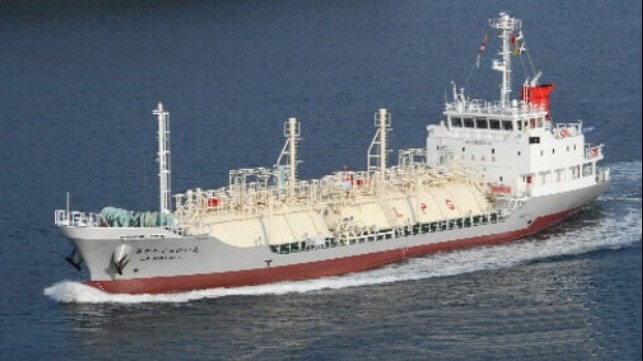MOL Tests Fuel Made of Cow Manure to Power Coastal LNG Ship

In the efforts to develop new sustainable forms of marine fuel, Japan’s Mitsui O.S.K. Lines (MOL) reports it will undertake the first test of a new form of liquified bio-methane (LBM) to fuel a coastal LNG vessel. The unique product is an advanced form of fuel used by farmers for years derived from cow manure.
MOL will jointly study the new LBM fuel working with a Japanese company Air Water which has been working on developing the process for manufacturing the fuel. Their initial efforts confirmed that the LBM can be transported, supplied, and used without problems employing the existing shore and onboard equipment. In the first half of 2023, they plan to test the fuel aboard MOL’s coastal LNG-fueled vessel. In the future, MOL and Air Water will contribute to the development of low-carbon and decarbonized ocean transport by leveraging their combined knowledge and experience in the use of LBM as a marine fuel.
Air Water has been working on the development of a demonstration supply chain for the last several years looking to expand methane fermentation processes (biogas plants) historically operated by cattle farmers. In 2021, Japan’s Ministry of the Environment approved a demonstration project for the technological development of the process and supply chain for LBM.
The biogas produced by cattle farmers is about 60 percent methane and 40 percent carbon dioxide. The farmers have traditionally used this as a power source.

that matters most
Get the latest maritime news delivered to your inbox daily.
Under the processes developed by Air Water, the LBM is made by collecting the biogas extracted using methane fermentation and then separating the methane from the CO2. The liquefaction process like that used in other forms of gas permits the reduction in the volume to transport the product. MOL reports that the liquefying process happens at about -160 degrees C and can compress the volume to 1/600th of the gas. The calorific value of the resulting LBM is reported to be about 90 percent of the value of the current LNG products.
AirWater started full-scale operations at its production plant in 2022. The company looks to build on its heritage in liquefied petroleum gas (LPG) and kerosene to develop alternative fuels.
